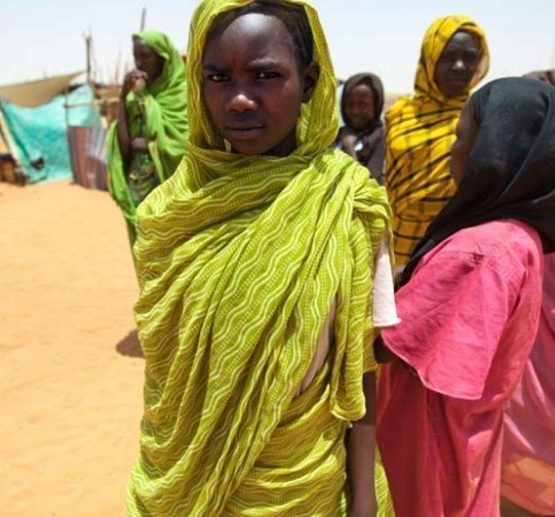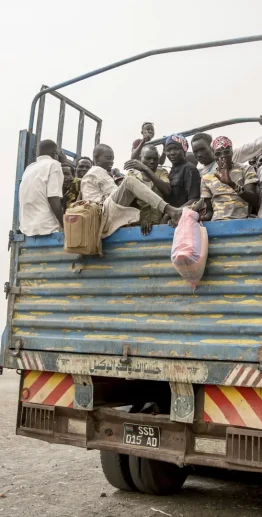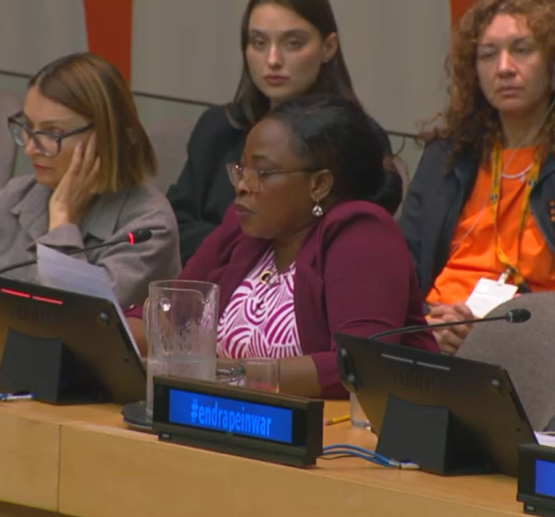Stand with the Women of Sudan
Join us Throughout the 16 Days of Activism Campaign Against Gender-Based Violence
Today, November 25, marks the International Day for the Elimination of Violence against Women and the beginning of the annual international campaign — The 16 Days of Activism Against Gender-Based Violence — which runs until December 10, Human Rights Day. On this day, Darfur Women Action Group (DWAG) will join forces with individuals and organizations to draw awareness to violence against women (VAW) in Sudan and around the world to collectively call for the elimination of violence against women and girls. In particular, DWAG would like to draw attention to Sudanese women’s suffering and recognize their courage, resilience, and determination to fight for their rights for greater opportunities to participate in the transformation of their country.
The suffering of Sudanese women has gone on for far too long as systematic rape has been used as a weapon of war in Darfur for 19 years. The military also used the same tactics to quell protests in Khartoum during the recent protests against the military coup. The international community has failed the women of Sudan by failing to hold those responsible for these heinous crimes committed against women accountable.
DWAG was hopeful that the 2019 revolution had brought hope for change in Sudan and that Sudanese women would finally be able to participate fully in society and governance. Unfortunately, women were excluded by the interim government and even more so now after the military coup. This is because, since the military takeover, the civic space for women has severely shrunk, making it nearly impossible for women to make their voices heard.
To make matters worse, in the past two years, COVID-19 has exacerbated the impact of gender-based violence (GBV) and exposed the vulnerability of women and girls around the world to systemic violence, including in Sudan. In Darfur, sexual and GBV continued at an alarming rate after the withdrawal of the United Nations -African Union Mission in Darfur (UNAMID), which left women and girls, especially those in displaced camps in Darfur, more vulnerable to GBV due to the lack of protection and accountability. The withdrawal has resulted in an increase of attacks on civilians by the Rapid Support Forces (RSF) and militias, including rape. From late July-September alone, 17 cases of rape at the Zamzam camp alone were reported, however, more have likely occurred but went unreported due to the social stigmatization of victims and fear of retaliation from the perpetrators. The prevalence of GBV across Darfur shows the need for accountability mechanisms and gender-responsive policies to tackle these challenges.
Despite the long-standing suffering and oppression of Sudanese women from Darfur: where hundreds of thousands have lived in camps for two decades, to Khartoum: where they led the revolution for peaceful change, women have demonstrated outstanding resilience, courage, and resolve to fight for justice. Nonetheless, international and regional actors and stakeholders working to resolve the crisis in Sudan have not prioritized women’s participation and inclusion of women. This has led to the failure to utilize the qualities demonstrated by women across Sudan.
Moreover, all eyes have been centered in Khartoum following the military coup, while violence against civilians in Darfur has escalated, including GBV incidents with total impunity. Although an agreement was reached between the Sudanese military and Prime Minister Hamdok, fears are looming on the ground that the military will continue to use excessive force and that VAW, including the systematic use of rape as a weapon of war, will continue to go unaddressed. Therefore, for this year’s 16 Days Campaign, DWAG will emphasize the resilience of women in Sudan and call for their inclusion and participation in all levels of decision-making as a top priority for ending VAW in Sudan. Throughout the longstanding crises in Sudan, women have remained the most impacted and the least included. Countless peace deals have failed because women were not at the table. We believe that without women’s effective participation in decision-making, peace and stability will unlikely be achieved in Sudan. For this, we must stand with Sudanese women and demand their meaningful inclusion in governance.
We must stand together in solidarity with Sudanese women and highlight how powerful, peaceful, and resilient they have been throughout the years despite the challenges they continue to face. We at DWAG believe ending violence against women starts with accountability for crimes committed against women, women’s empowerment, and their effective participation and inclusion in all levels of decision-making. For this, DWAG has organized this campaign so you may join us in demanding women’s protection, prevention, participation, and most importantly, accountability for the crimes committed against women in order to create an enabling environment for all women to transform their country.
In the coming days, DWAG will share powerful messages from activists, Darfuri women in the diaspora, blogs, and social media posts emphasizing the challenges Sudanese face, and action opportunities you can take to amplify our call for action to end violence against women. We hope you will join us throughout these 16 Days Activism Campaign against Gender-Based Violence to advocate for the elimination of GBV and to encourage the meaningful and active participation of women in Sudan and elsewhere in all levels of decision-making.
Sincerely,
Niemat Ahmadi
Founder and President, Darfur Women Action Group
1629 K St. NW
Suite #300
Washington, D.C. 20006
United States
Latest Features and News
Latest Headlines
Sudanese seek refuge underground in besieged Darfur city
March 15 - 2025
Sudan facing ‘the abyss’ unless war ends as…
March 13 - 2025
+ Read MoreLatest Headlines
Sudan war: Children facing ‘unimaginable suffering’, warns UNICEF…
March 13 - 2025
MSF pulls out of famine-stricken camp in Sudan’s…
February 24 - 2025
+ Read More


